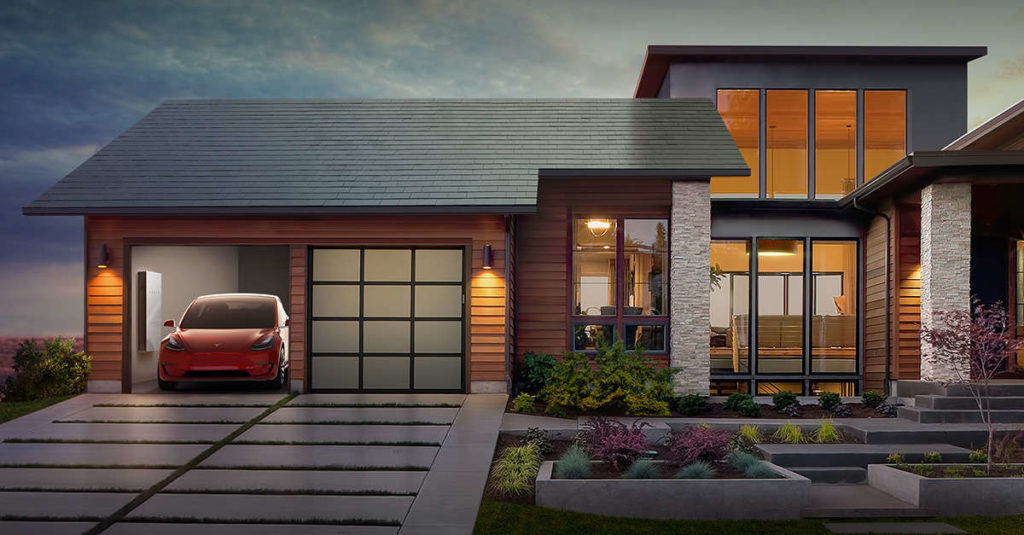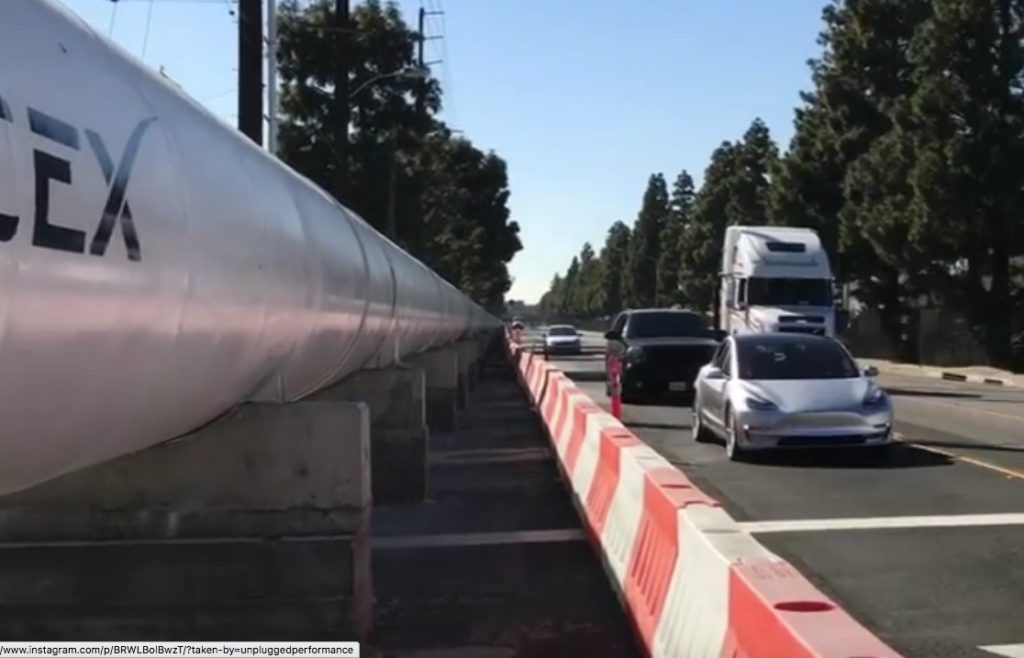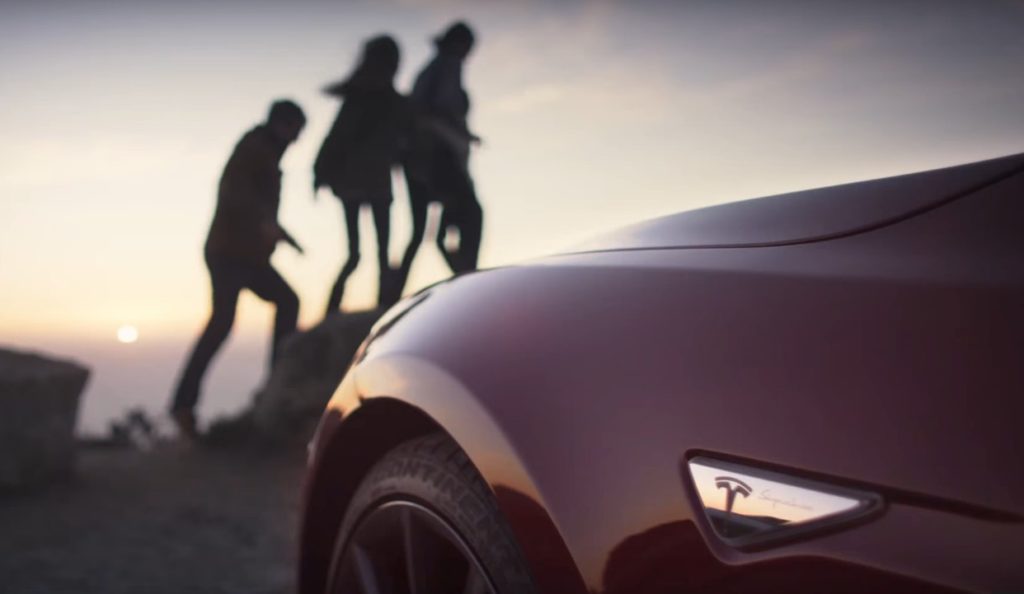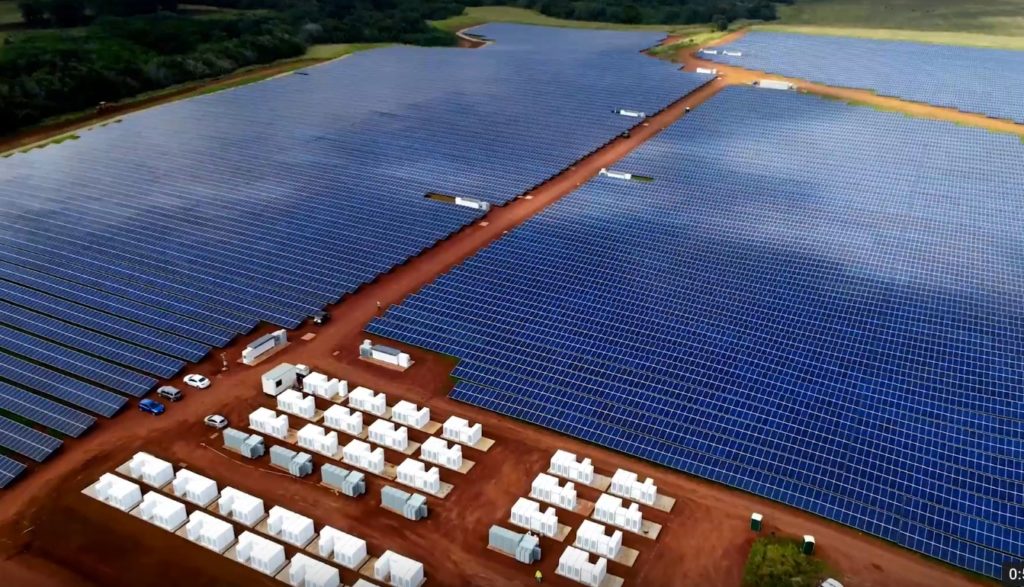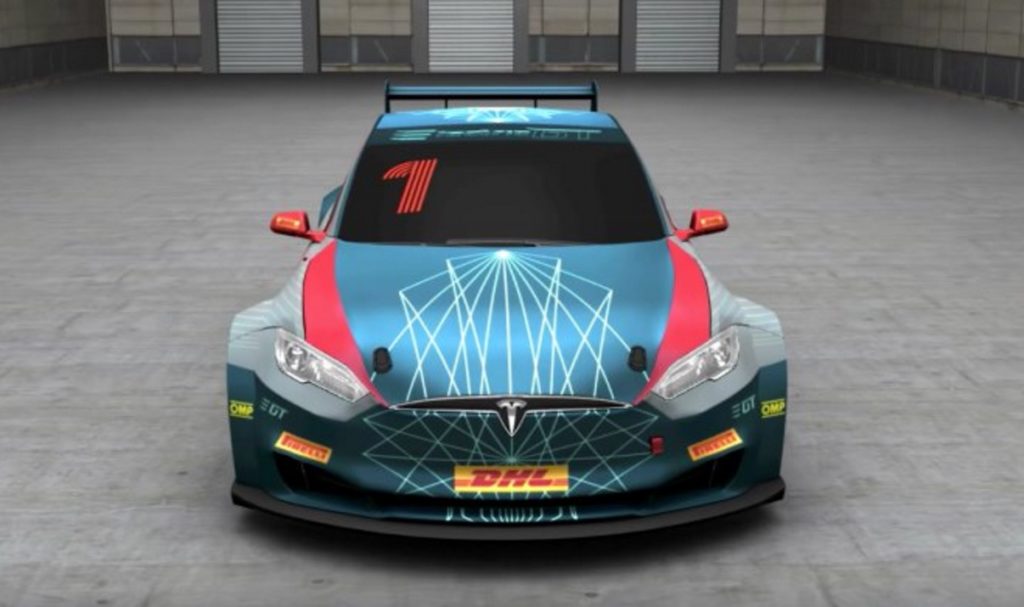Energy
Tesla Top 5 Week in Review: Solar Roof, P100D Race Car Composites, Model 3 sighting, and more
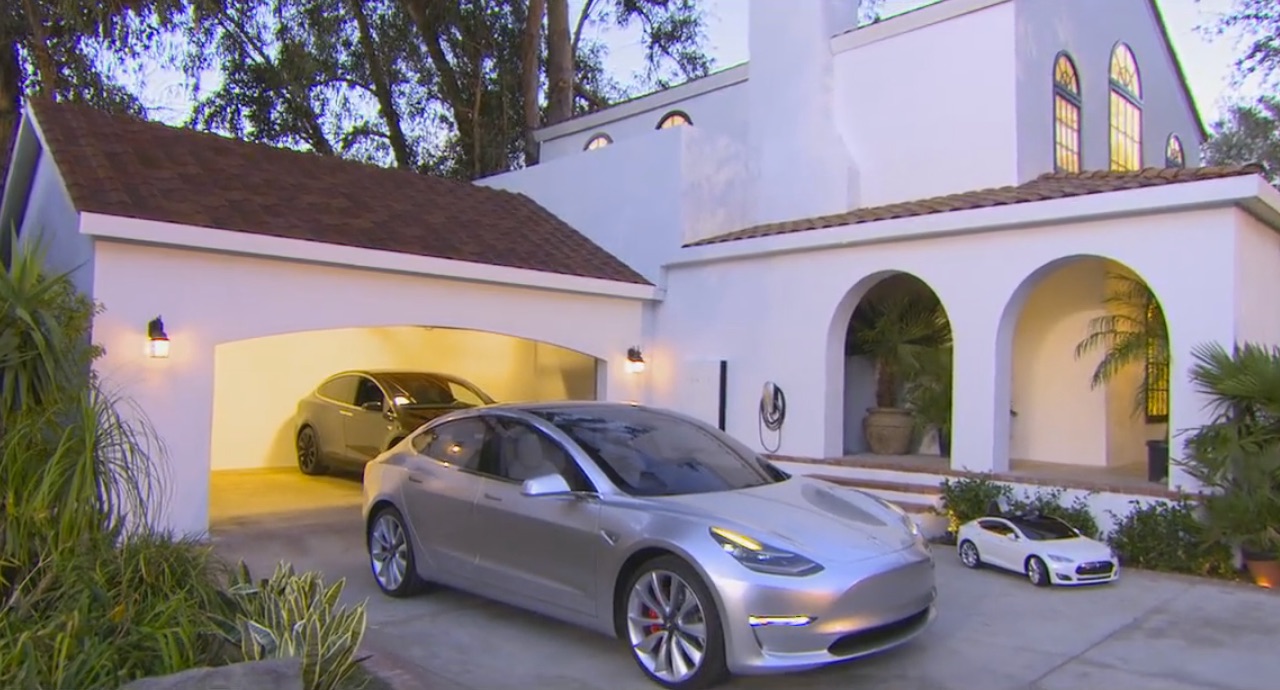
The top articles of the week at Teslarati revolved around some of the Biggest Tesla Stories for 2017, with solar roof production at Gigafactory 2 and a Model 3 prototype sighting taking the news fast lane. But sometimes the small voices are the ones that are heard the loudest, with an upcoming Tesla commercial as the result. Tesla has become the first company to provide large magnitude solar energy for a utility, and a self-described vegan hippie race car chick will unveil an electric GT Tesla P100D race car later this month — and it’s made of biocomposite materials. Here are those stories, and more.
Tesla gears up for Solar Roof production at Gigafactory 2, Panasonic will have major role at plant
Tesla’s factory in Buffalo, dubbed Gigafactory 2, will be a site of solar roof tile manufacturing. Panasonic, Tesla’s strategic partner, will manufacture solar cells there with ancillary help from Silevo, which SolarCity acquired in 2014. Panasonic, which has a $250 million investment in the facility, will also produce full solar panels in Buffalo, and those will be sold to Tesla. Panasonic has agreed to grant adjustable pricing to Tesla for solar products it purchases from the Japanese electronics company over the next 10 years.
Tesla Model 3 spotted testing along Hyperloop track outside of SpaceX
A polished and very complete-looking silver Tesla Model 3 prototype was caught in rare video footage this week doing test runs on a street outside SpaceX and the Hyperloop test track. Unplugged Performance, which produces upgrades for Tesla vehicles, spotted the prototype cruising around the nearby area. The Model 3 is newest vehicle in the Tesla catalog, with a starting price of $35,000 and an expected production date of summer, 2017. The prototype has made guest appearances at a number of events and venues, including an investor event in January.
Tesla launches “Project Loveday” contest for fan-made commercials
This week, Tesla CEO Elon Musk — whose Twitter feed is a much-visited social media site by journalists, Tesla owners, and cleantech aficionados — announced that he would hold a contest for homemade advertisements after receiving a challenge from a fifth grade student. “Thank you for the lovely letter. That sounds like a great idea. We’ll do it!” Musk tweeted to young Bria. The “Project Loveday” contest, which will end on May 8, 2017, will review the best fan-made commercials. According to the blog post on Tesla’s website, entrants can submit a link to a 90 second or less YouTube video along with a brief description.
Tesla locks in 20-year deal to provide solar electricity to Kauai Island Utility
On Kauai, which is described by many as the most picturesque of the Hawai’ian islands, daytime reliance on solar energy and other renewables has traditionally dissipated when the sun sets. Now that’s all changing, as the Kauai Island Utility Cooperative (KIUC) is drawing energy from 272 Tesla power packs to provide electricity after dark. The measure will save KIUC 1.6 million gallons of diesel fuel annually and will cut KIUC costs per kilowatt hour from 15.5 cents down to a fixed price of 13.9 cents for the next 20 years. The agreement shifts the power generation from the utility to Tesla, and Tesla is the first company with which any utility company has contracted for a system of this magnitude.
Leilani Münter will help showcase Tesla race car “biocomposites” made of natural fibers
Electric GT’s Tesla P100D race car will be in Paris on March 15 with Leilani Münter showcasing the car’s high performance composite material made from natural fibers. Swiss firm Bcomp configures natural fibers into ultralight components known as “biocomposites” for the Electric GT race vehicles. These materials are formed by a matrix which mimics the structure of the living materials, maintains strengthening properties, and provides biocompatibility. An environmental activist, Münter believes it is essential for humans to adapt and evolve to a sustainable way that does not destroy the world. The racer is an advocate for renewable energy, solar power, electric cars, and plant-based diets and has been a longtime Tesla protege.

Cybertruck
Tesla updates Cybertruck owners about key Powershare feature
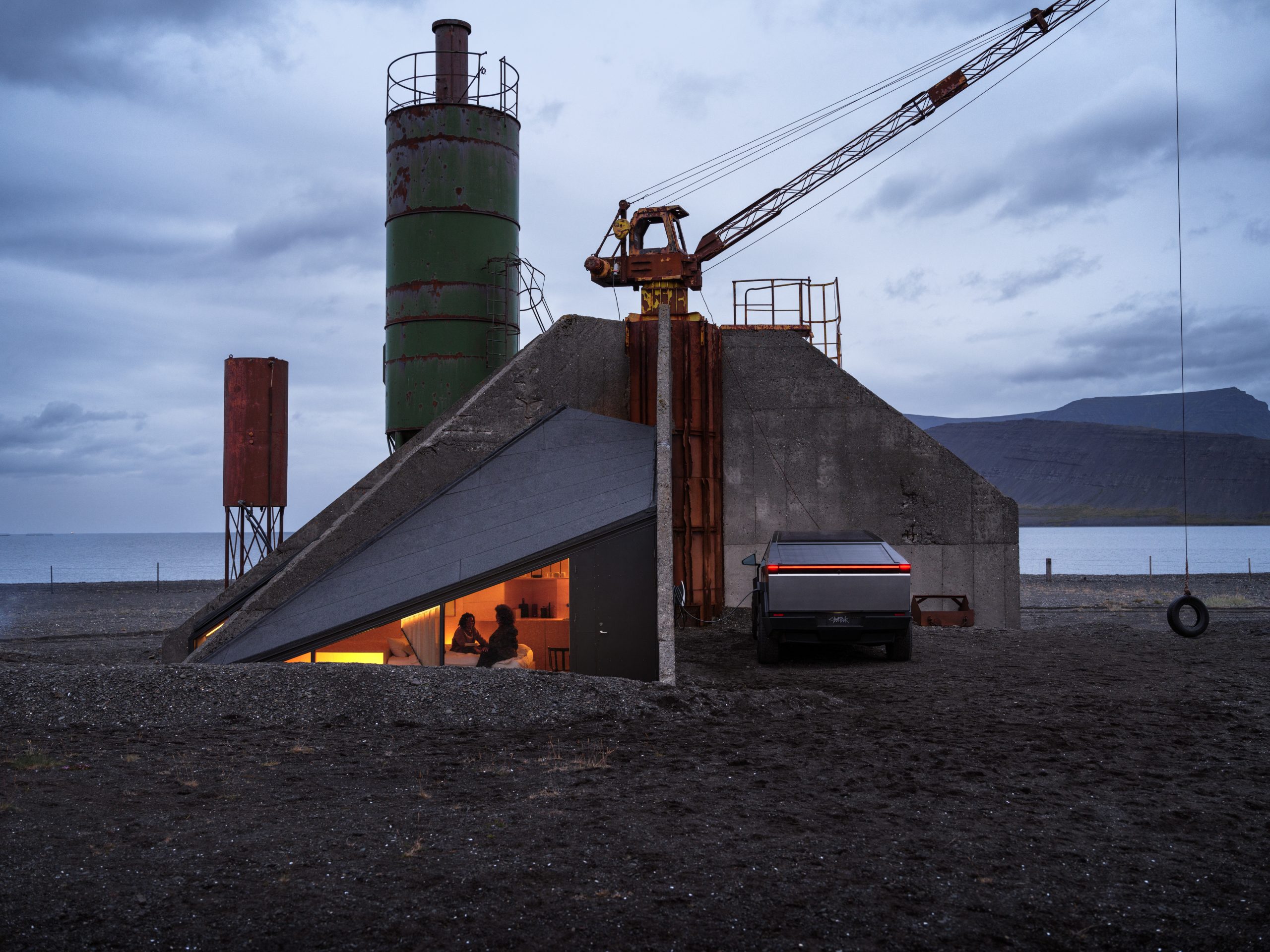
Tesla is updating Cybertruck owners on its timeline of a massive feature that has yet to ship: Powershare with Powerwall.
Powershare is a bidirectional charging feature exclusive to Cybertruck, which allows the vehicle’s battery to act as a portable power source for homes, appliances, tools, other EVs, and more. It was announced in late 2023 as part of Tesla’s push into vehicle-to-everything energy sharing, and acting as a giant portable charger is the main advantage, as it can provide backup power during outages.
Cybertruck’s Powershare system supports both vehicle-to-load (V2L) and vehicle-to-home (V2H), making it flexible and well-rounded for a variety of applications.
However, even though the feature was promised with Cybertruck, it has yet to be shipped to vehicles. Tesla communicated with owners through email recently regarding Powershare with Powerwall, which essentially has the pickup act as an extended battery.
Powerwall discharge would be prioritized before tapping into the truck’s larger pack.
However, Tesla is still working on getting the feature out to owners, an email said:
“We’re writing to let you know that the Powershare with Powerwall feature is still in development and is now scheduled for release in mid-2026.
This new release date gives us additional time to design and test this feature, ensuring its ability to communicate and optimize energy sharing between your vehicle and many configurations and generations of Powerwall. We are also using this time to develop additional Powershare features that will help us continue to accelerate the world’s transition to sustainable energy.”
Owners have expressed some real disappointment in Tesla’s continuous delays in releasing the feature, as it was expected to be released by late 2024, but now has been pushed back several times to mid-2026, according to the email.
Foundation Series Cybertruck buyers paid extra, expecting the feature to be rolled out with their vehicle upon pickup.
Cybertruck’s Lead Engineer, Wes Morrill, even commented on the holdup:
As a Cybertruck owner who also has Powerwall, I empathize with the disappointed comments.
To their credit, the team has delivered powershare functionality to Cybertruck customers who otherwise have no backup with development of the powershare gateway. As well as those with solar…
— Wes (@wmorrill3) December 12, 2025
He said that “it turned out to be much harder than anticipated to make powershare work seamlessly with existing Powerwalls through existing wall connectors. Two grid-forming devices need to negotiate who will form and who will follow, depending on the state of charge of each, and they need to do this without a network and through multiple generations of hardware, and test and validate this process through rigorous certifications to ensure grid safety.”
It’s nice to see the transparency, but it is justified for some Cybertruck owners to feel like they’ve been bait-and-switched.
Energy
Tesla starts hiring efforts for Texas Megafactory
Tesla’s Brookshire site is expected to produce 10,000 Megapacks annually, equal to 40 gigawatt hours of energy storage.
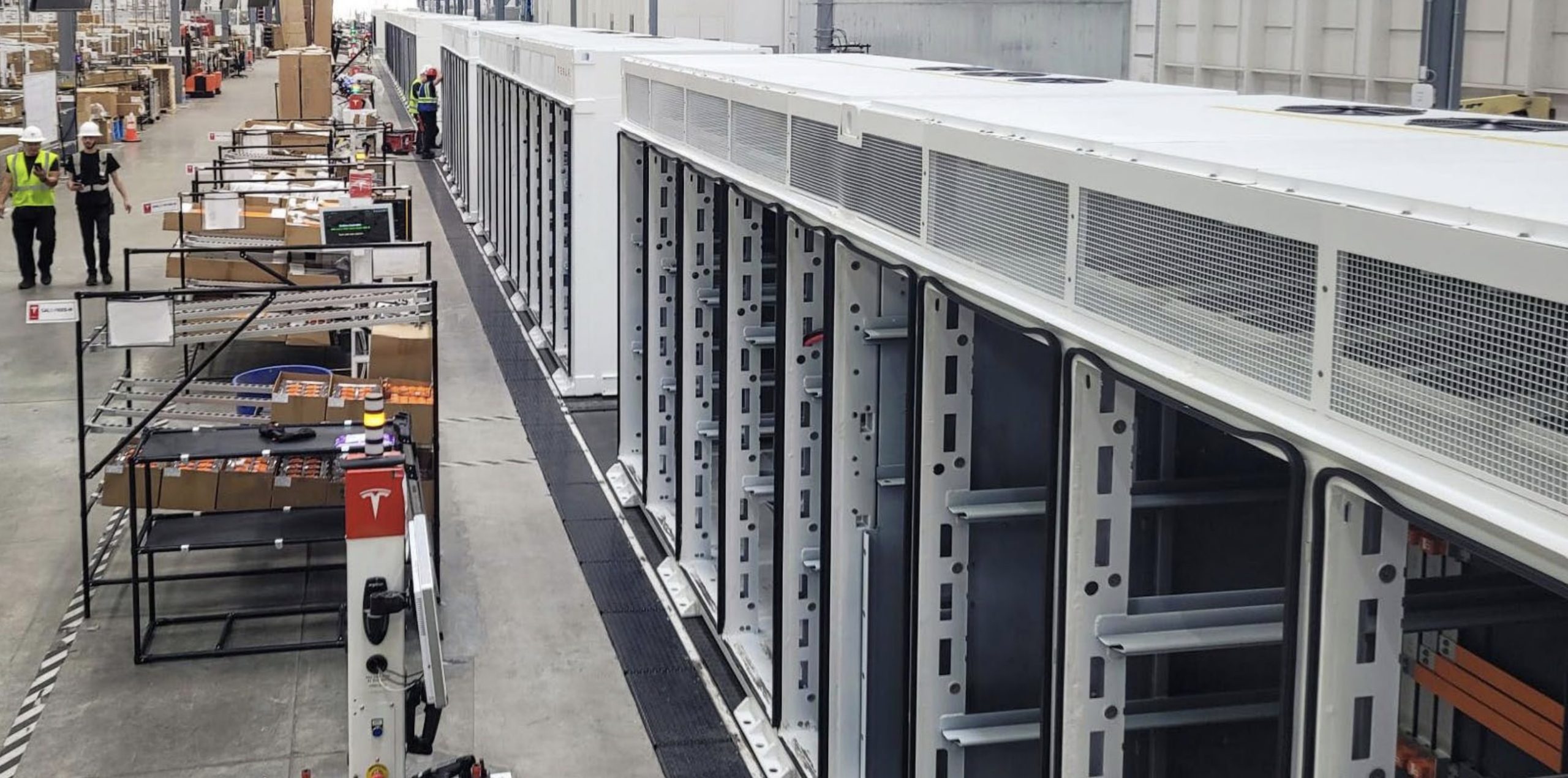
Tesla has officially begun hiring for its new $200 million Megafactory in Brookshire, Texas, a manufacturing hub expected to employ 1,500 people by 2028. The facility, which will build Tesla’s grid-scale Megapack batteries, is part of the company’s growing energy storage footprint.
Tesla’s hiring efforts for the Texas Megafactory are hinted at by the job openings currently active on the company’s Careers website.
Tesla’s Texas Megafactory
Tesla’s Brookshire site is expected to produce 10,000 Megapacks annually, equal to 40 gigawatt hours of energy storage, similar to the Lathrop Megafactory in California. Tesla’s Careers website currently lists over 30 job openings for the site, from engineers, welders, and project managers. Each of the openings is listed for Brookshire, Texas.
The company has leased two buildings in Empire West Business Park, with over $194 million in combined property and equipment investment. Tesla’s agreement with Waller County includes a 60% property tax abatement, contingent on meeting employment benchmarks: 375 jobs by 2026, 750 by 2027, and 1,500 by 2028, as noted in a report from the Houston Business Journal. Tesla is required to employ at least 1,500 workers in the facility through the rest of the 10-year abatement period.
Tesla’s clean energy boom
City officials have stated that Tesla’s arrival marks a turning point for the Texas city, as it highlights a shift from logistics to advanced clean energy manufacturing. Ramiro Bautista from Brookshire’s economic development office, highlighted this in a comment to the Journal.
“(Tesla) has great-paying jobs. Not just that, but the advanced manufacturing (and) clean energy is coming to the area,” he said. “So it’s not just your normal logistics manufacturing. This is advanced manufacturing coming to this area, and this brings a different type of job and investment into the local economy.”
Energy
Tesla and Samsung SDI in talks over new US battery storage deal: report
The update was related by industry sources and initially reported by South Korean news outlets.
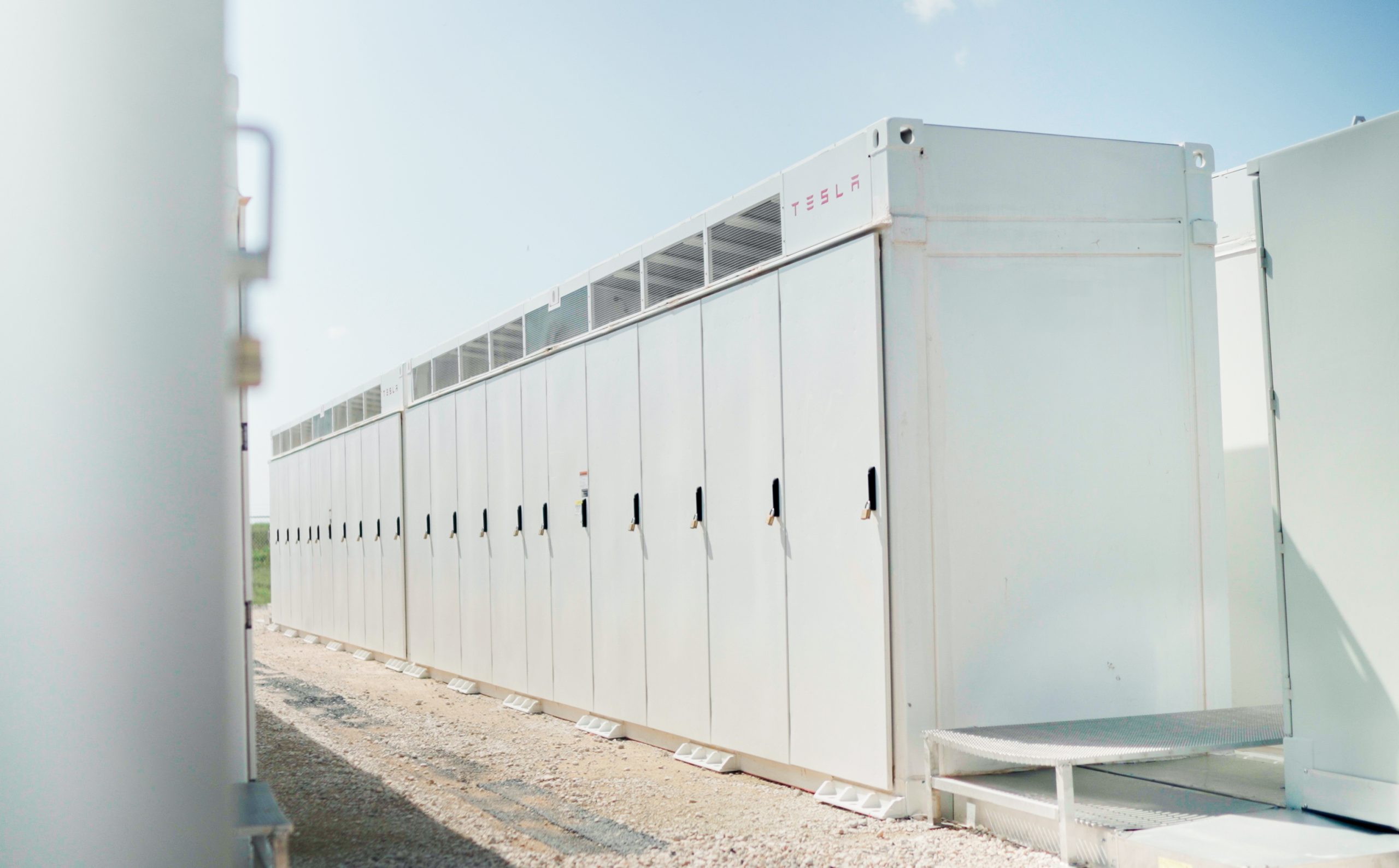
Recent reports have suggested that Tesla and Samsung SDI are in talks over a potential partnership to supply batteries for large-scale energy storage systems (ESS).
The update was related by industry sources and initially reported by South Korean news outlets.
ESS batteries to be built at Samsung’s Indiana plant
As noted in a report from Korea JoongAng Daily, the demand for energy storage systems has been growing rapidly in North America, thanks in no small part to the surge in AI investments across numerous companies. With this in mind, Tesla has reportedly approached Samsung SDI about a potential battery supply deal.
The deal is reportedly worth over 3 trillion Korean won (approximately $2.11 billion) and will span three years, according to The Korea Global Economic Daily. A battery supply deal with Samsung SDI could make sense for Tesla as the company already has a grid-scale battery, the Megapack, which is perfect for industrial use. Samsung SDI could simply supply cells for the EV maker.
Production of the batteries would reportedly take place at Samsung SDI’s joint venture factory with Stellantis in Indiana, which is currently under construction. Samsung SDI recently announced plans to use part of that plant’s EV lines to produce cells for ESS, with a targeted capacity of 30 GWh by the end of next year.
Tesla and Samsung’s partnership
At present, only a handful of manufacturers, including Korea’s LG Energy Solution, Samsung SDI, SK On, and Japan’s Panasonic, are capable of producing energy storage-scale batteries domestically in the United States. A Samsung SDI official issued a comment about the matter, stating, “Nothing has been finalized regarding cooperation with Tesla.”
The possible energy storage system deal adds another layer to Tesla’s growing collaboration with Samsung, which is already in line as a partner in the upcoming production of Tesla’s AI5 and AI6 chips. Early sample manufacturing of the AI6 is expected to begin in South Korea, with mass production slated for Samsung’s Texas-based Taylor foundry when it starts operations.
The AI6 chip will power Tesla’s next wave of high-volume projects, including the Optimus humanoid robot and the autonomous Cybercab service. Musk has called the partnership with Samsung a “real collaboration,” adding that he personally plans to “walk the line” at the Taylor facility to speed up progress.
